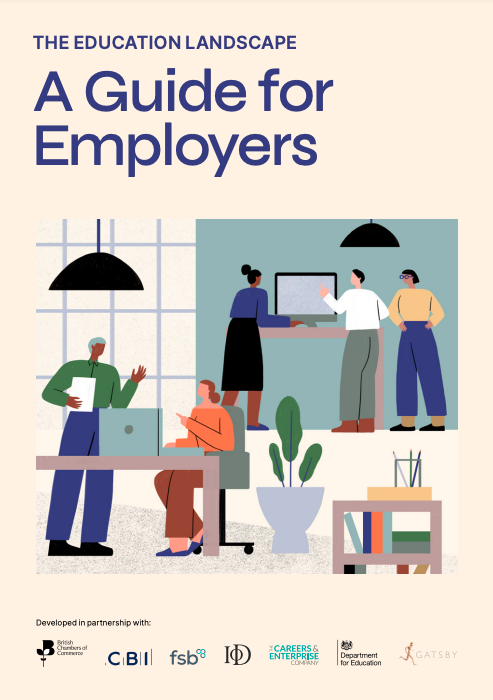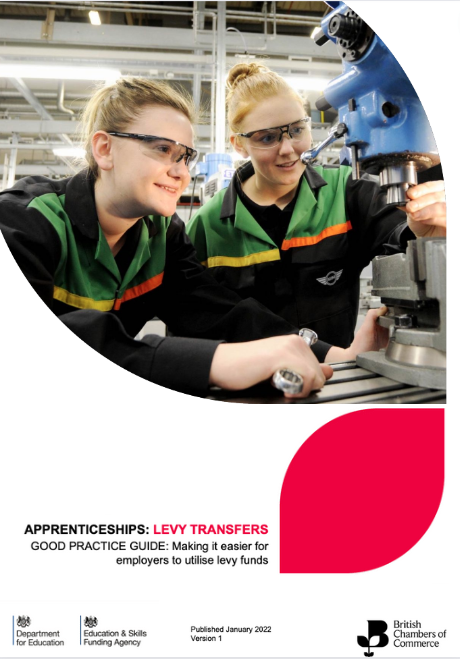A new phase, a fresh relationship with government...introducing the Business Council.

 BCC Workplace Equity Commission
BCC Workplace Equity CommissionThis UK-wide Commission is investigating how employers are experiencing the Equality, Diversity and Inclusion agenda; where we can identify and scale up best practise; and policy recommendations to support employers and individuals.
The commission includes national experts, business leaders and representatives from the UK and international Chamber networks. Meeting regularly over the next 12 months, the group will produce practical recommendations for government and business to progress the ED&I agenda in the workplace.
Click here to see the Commissioners.

Across England, 32 Accredited Chambers of Commerce are convening businesses, training providers, funders and a wide range of local stakeholders to plan for the skills needed to boost local economies and improve opportunities for individuals.
Contact your local Chamber to find out more and see the full list of designated employer representative bodies here.

T Levels are a new qualification for students aged 16 to 19 who've finished their GCSEs. They are designed by employers for employers and include a 45-day industry placement that gives you early access to the brightest talent entering your market.
Each T Level is equivalent in size to 3 A levels and helps young people develop the knowledge, attitude and practical skills to thrive in the workplace.
Every T Level student completes an industry placement that lasts a minimum of 315 hours (approximately 45 days). Industry placements give employers a unique opportunity to help develop new talent, and get young people work-ready.

A step-by-step guide has recently been published for employers which helps to clarify the steps involved in delivering successful apprenticeships in their businesses.
The straightforward guide helps employers decide if apprenticeships are right for them by addressing practicalities like, funding, choosing an apprenticeship provider and organising end-point assessment.
The guide clearly sets out employer’s responsibilities, how they can support their apprentice and plan for their progression once the apprenticeship has been achieved. The step-by-step guide draws everything together into one convenient place.

Businesses have a key role in helping young people understand the local career opportunities available and in offering the work experience that can bridge the gap between the worlds of education and the workplace. Contact your local Chamber who can help you connect to schools, colleges and universities in your area.

The Education Landscape - A guide for employers
This Guide is an overview of the education system as a whole and explains how employers can work with schools, colleges and universities, and the wider skills system, to benefit their business.

Apprenticeships: levy transfers - good practice guide
This employer guide is the joint work of the Department for Education, The Education and Skills Funding Agency and the BCC. If you are a business with Apprenticeship Levy funds to share, or an SME with apprenticeship ambitions, we hope it will help you to connect and succeed.

The Report of The Independent Workplace Training and Development Commission outlines the changes needed in the skills system to ensure employers can access a skilled workforce and the adults can continuously train and retrain for sustainable jobs. The report includes recommendations for government, training providers, employers and individuals.


BCC liaises with ministers and government to shape the business environment in relation to employment and skills. Our Employment Expert Panel provides insights on the impact of employment policy from a wide range of sectors and regions.

The Open University (OU) Webinar - How to beat the skills shortage
This webinar discussed the UK’s skills landscape, in the context of the findings of the 2022 Business Barometer report, which was produced by the OU in conjunction with BCC.
Sonia Sodha, Chief Lead Writer and Columnist at The Observer, facilitated the panel discussion. Joining her on the panel were Ettie McCormack, Learning and Performance Consultant at STEP Forward Solutions, Phil Kenmore, Director of Corporate Development and Partnerships at the OU and Jane Gratton, Head of People Policy at the BCC.
The Business Barometer report, now in its sixth year, identifies the key workforce and skills issues facing UK organisations. This year’s report found that over two-thirds of SMEs are currently experiencing skills shortages, with larger organisations faring even worse - 86% of large organisations are reporting skills gaps. Manufacturing, the public and third sectors are particularly hard hit.
After discussing the key findings from the report, the webinar then outlined a three-pronged, strategic approach to addressing skills shortages: plan, train and consult.
Watch below
4 steps to help you to attract and retain a skilled workforce
People are the lifeblood of any business – bringing the skills and creativity we need for growth and success. In this video, Jane Gratton, Head of People Policy at the BCC shares some practical steps to help you to attract and retain a skilled workforce.
Watch below
